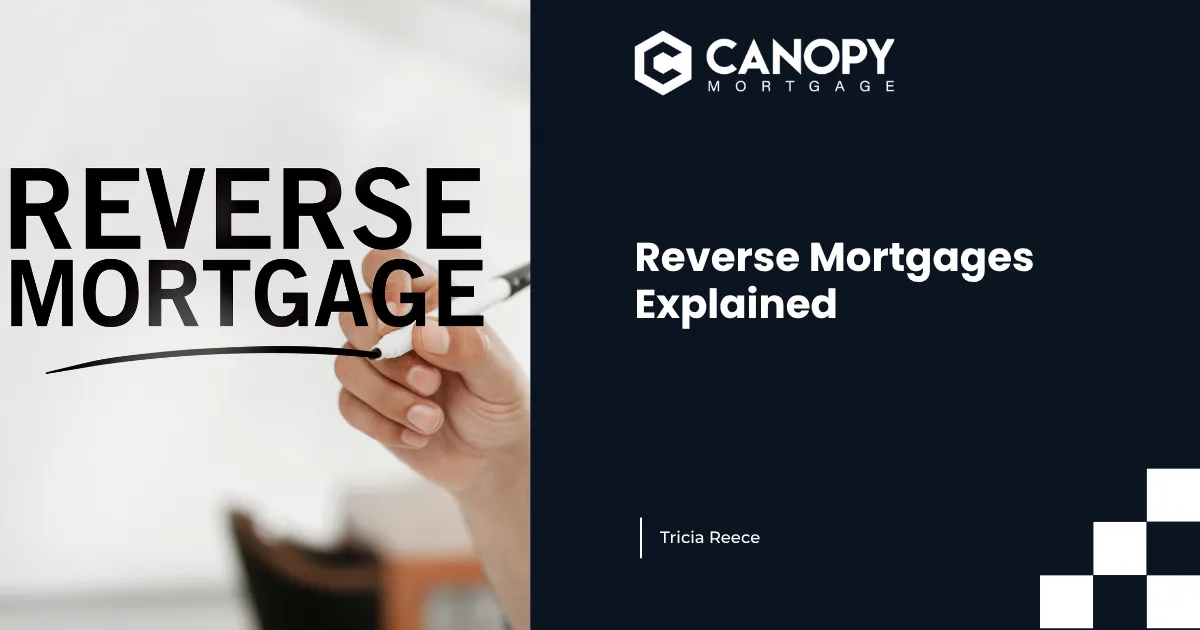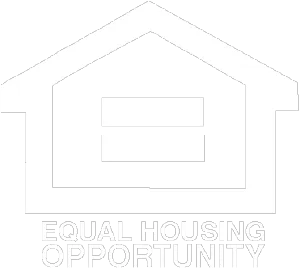Your Local Mortgage Lender
Licensed in WA, AZ and TN
Personalized Mortgage Experience
Tricia Reece offers personalized service and loan options you'll love. We shop multiple lenders to find the best rate and product for you, getting you into your dream home faster.
With wholesale interest rates and cutting-edge technology, we make the mortgage process seamless. Trust the experts who focus solely on mortgages. Support your local community and experience elite client service.
Let us help you achieve your homeownership dreams!
The Home Loan Process
Mortgage Pre-Approval
Get pre-approved from one of our Loan Officers to see how much you can afford.
House Shopping
Work with a trusted Real Estate Agent to find a home you would like to move into.
Loan Application
Complete your home loan application to get the lending process started.
Don't take our word for it
Mortgage Programs
Experience the best mortgage experience located in Washington.
Home Loan Options
Our experienced mortgage advisors will walk you through the best mortgage loan program that will fit your specific scenario.
Conventional Home Loans.
FHA Home Loans.
USDA Home Loans.
VA Home Loans.
Frequently Asked Questions
How often can I refinance my mortgage?
There is no limit to the number of times you can refinance. However, you must qualify every time you apply and there will be costs associated with closing the loan each time.
Can I buy a home if I do not have money for a down payment?
Yes! There are a number of bond programs that offer low or no down payment financing options.
How do I know which mortgage is right for me?
The key to choosing the right mortgage is to understand the range of options and features available to you, as well as your budget, circumstances, and goals. Our licensed mortgage professionals are here to help you navigate that process. The more you know, the more comfortable and confident you will be choosing the best option for you and your family.
How long will the loan process take?
The Truth in Lending Act (TILA) does not permit a lender to close a loan until at least seven (7) business days have passed from the date your application was received. A typical home loan takes 30 days, as a number of third-party services such as appraisals, title work, and credit are required in conjunction with the mortgage process. Once you familiarize your Loan Officer with the details of your specific loan scenario, they will be able to provide you with a more specific timeline.
Will I qualify for a home loan?
The only way to find out is to speak with a qualified mortgage professional. Our Loan Officers have helped numerous clients who didn’t know if they could qualify to become home owners. We take the time to understand your financial situation and long-term financial goals, and then match you with the loan program that best fits your needs. Your approval for a loan may also largely depend on the price of the home you are financing. Getting pre-qualified prior to beginning your home search can give you an idea of what you may be able to afford.
Why do people refinance their mortgages?
Homeowners typically refinance to save money, either by obtaining a lower interest rate or by reducing the term of their loan. Refinancing is also a way to convert an adjustable loan to a fixed loan or to consolidate debts.
How much money will I have to pay upfront to buy a home?
This question does not have a simple, one-size-fits-all answer. The exact amount will depend on the price of the home you buy as well the type of mortgage financing you choose. Depending on your loan program, your down payment could be as much as 20% of the home’s price or as little as 3%, while some loans require no down payment at all.
Can I get a mortgage after bankruptcy?
You may still qualify for a home loan even if you have experienced a bankruptcy. The best way to find out if you qualify is to talk with a Loan Officer to discuss your options. Be sure to bring all paperwork regarding your bankruptcy so your Loan Officer can find the program that best fits your situation.
Should I lock my interest rate now, or wait until we are closer to our closing?
Interest rates fluctuate all day, every day. If an interest rate is good, it may be in your best interest to lock now. If you wait, you run the risk of an increase in rates later. If you are concerned that rates may go down after you lock, contact your Loan Officer to discuss your options. Some programs allow you to lock for an extended period and choose to lower your rate should a better one become available.
Most Recent Blog Updates

Reverse Mortgage
If you’re 62 or older, your home may be one of your biggest financial assets — and a reverse mortgage could help you make the most of it. This unique loan allows homeowners to convert part of their home equity into tax-free cash, all while staying in their home and maintaining ownership.
How a Reverse Mortgage Works
A reverse mortgage is a special type of loan that pays you, rather than the other way around. Instead of making monthly mortgage payments, you receive funds based on your home’s value and equity. You continue to live in your home, and you remain responsible for property taxes, homeowners insurance, and maintenance.
The loan is typically repaid later — most often when you sell your home or no longer live there.
The most common type is the Home Equity Conversion Mortgage (HECM), insured by the Federal Housing Administration (FHA). It’s the only reverse mortgage backed by the U.S. government, designed to protect borrowers and ensure fair terms.
Options for Higher-Value Homes
For homeowners with higher-value properties, there are also non-HECM reverse mortgages, which can offer larger loan amounts — up to $4 million in some cases. In certain states, these may be available starting at age 55.
At Canopy Mortgage, Tricia and her team offer both FHA-insured HECM loans and non-HECM reverse mortgages, helping clients choose the option that best fits their financial goals.
Why Homeowners Are Choosing Reverse Mortgages
According to HUD data, more than 1.36 million Americans have used a reverse mortgage as part of their retirement strategy — and 94% say it gave them greater peace of mind.
Common reasons homeowners choose this option include:
Supplementing retirement income
Paying off existing debt
Covering medical or living expenses
Enjoying more financial flexibility during retirement
Is It Right for You?
A reverse mortgage isn’t the right fit for everyone — but it can be a powerful tool for the right situation. If you’re looking to stay in your home while improving your cash flow, it’s worth exploring with a trusted mortgage professional.
Tricia at Canopy Mortgage offers free, no-pressure consultations to help you understand your options and what this could look like for your specific needs.
Sources:
U.S. Department of Housing and Urban Development — https://www.hud.gov
Consumer Financial Protection Bureau — https://www.consumerfinance.gov
AARP — https://www.aarp.org
U.S. News Real Estate — https://www.usnews.com
Mortgage Calculator
See your total mortgage payments using the tool below.


State Licenses
AZ #1033874
WA #MLO-1958465
TN #1958465
Social Media Links
YouTube
